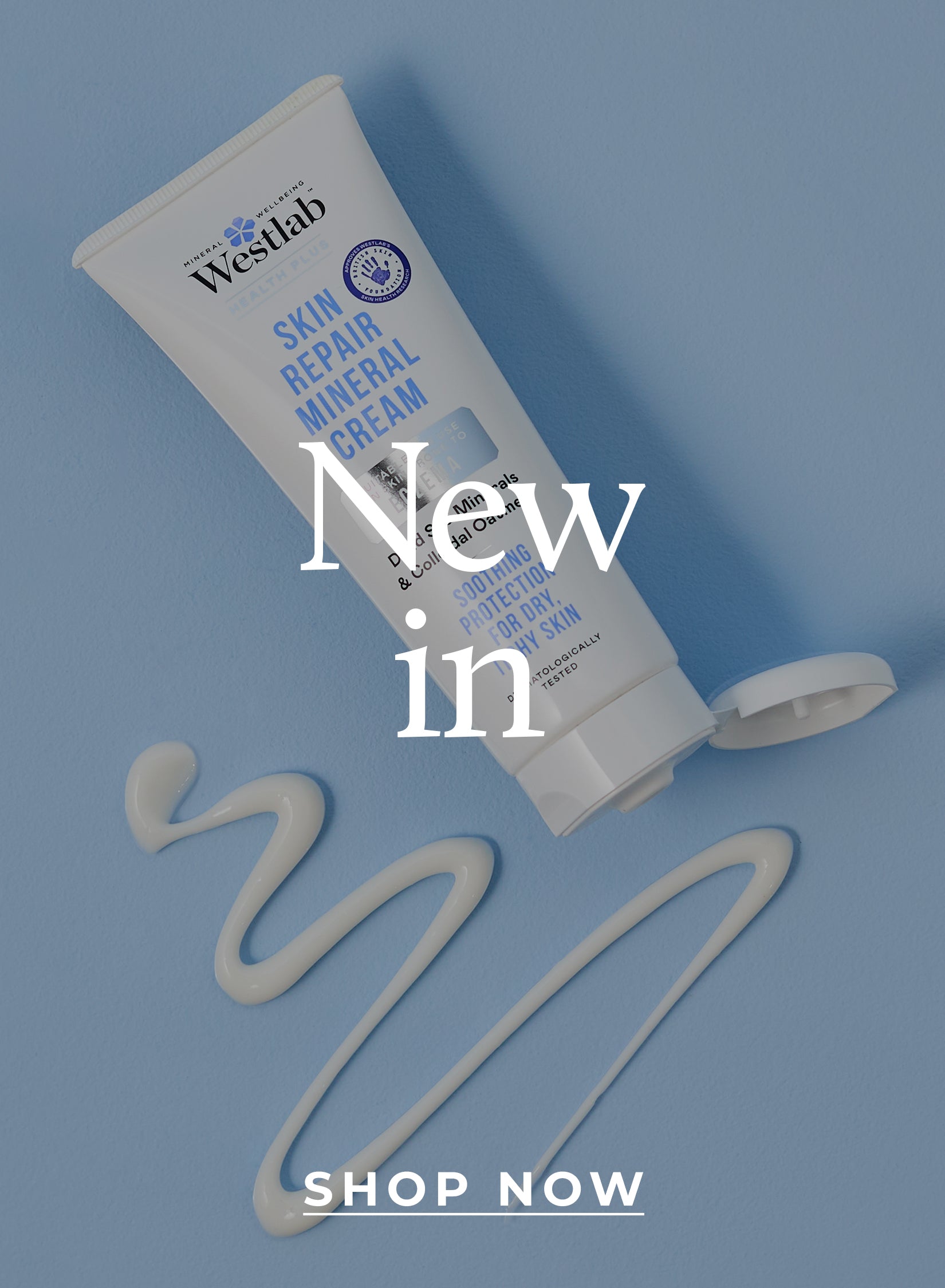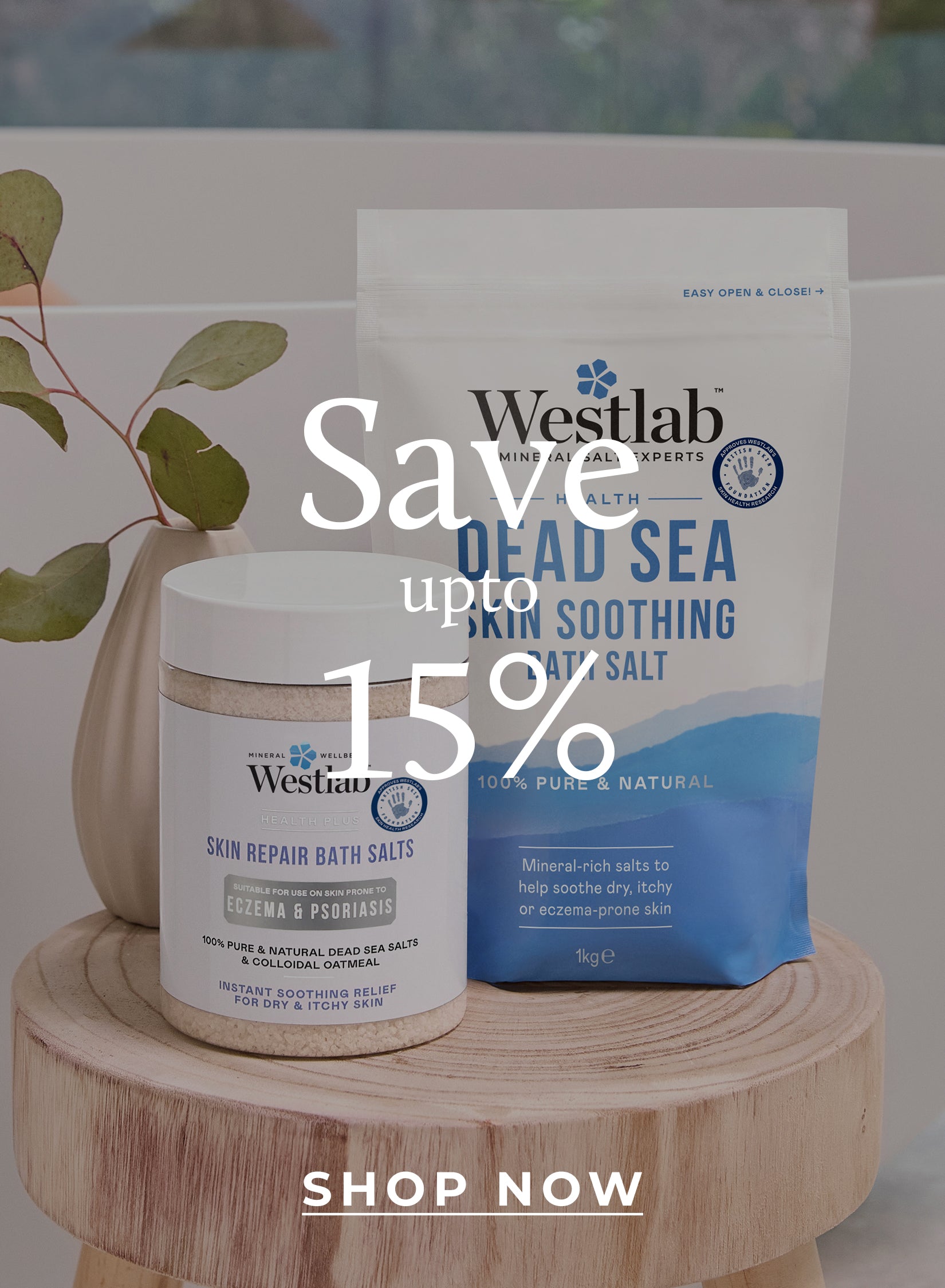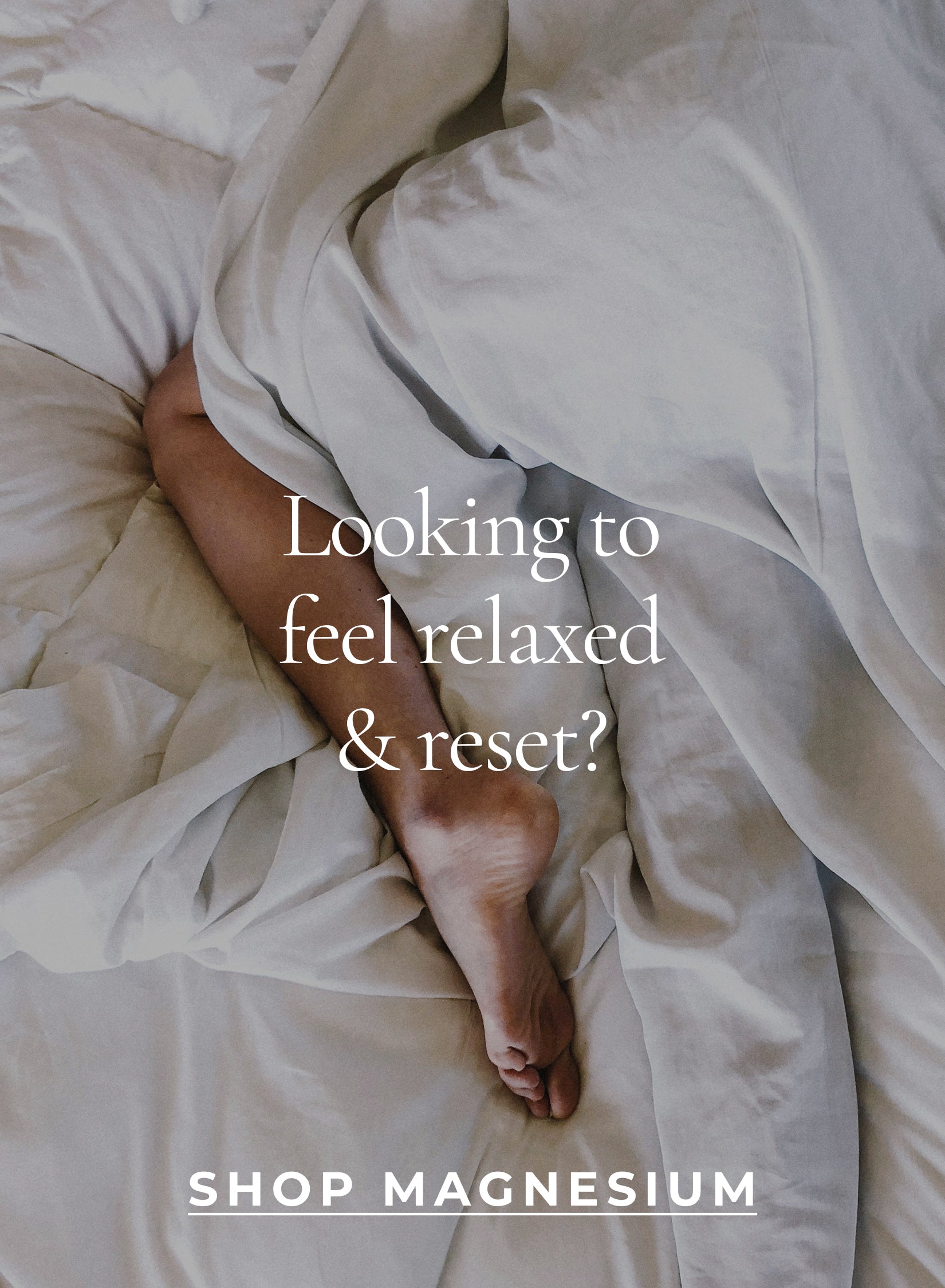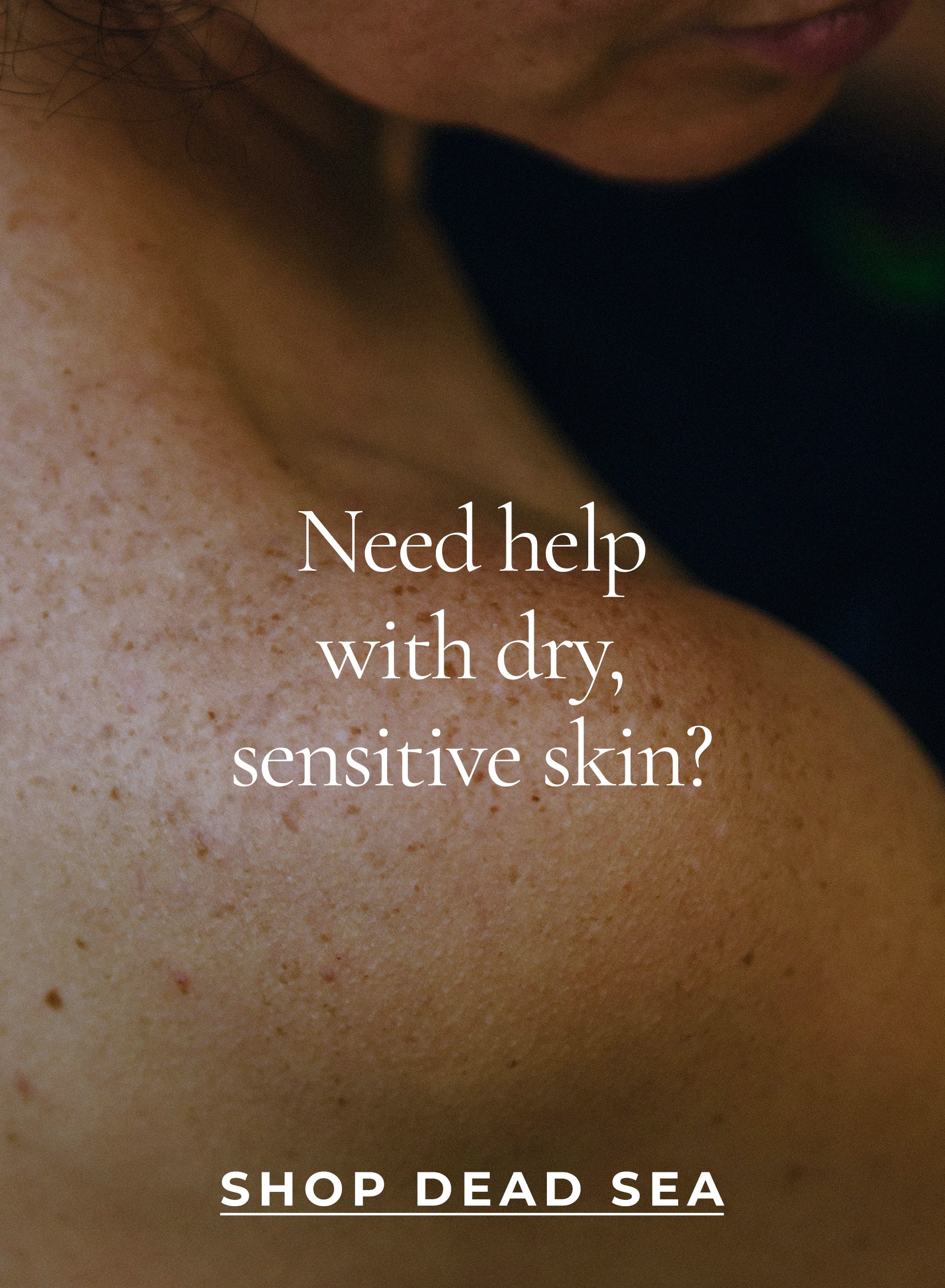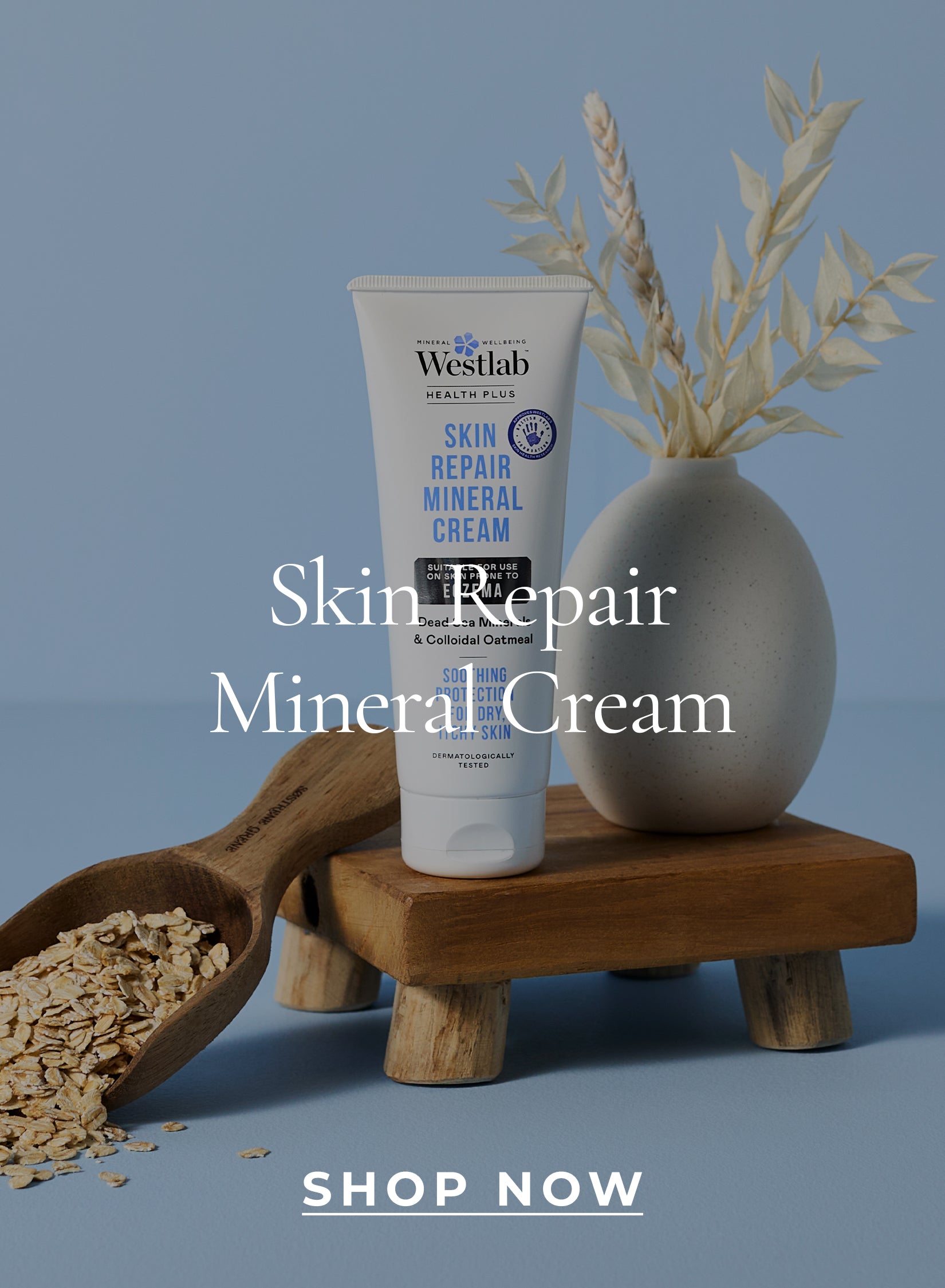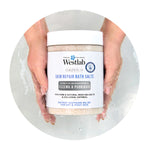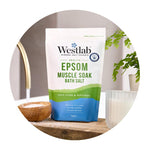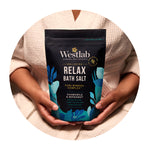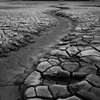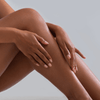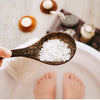My journey learning how to heal sensitive skin and eczema

During my years working in spa’s and skincare clinics, my area of expertise became desensitizing troubled skin. This was due to the understanding and insights I’d discovered on my own personal journey with sensitive skin.
Having been lucky enough to have healthy, resilient skin in my teens I was unprepared for what was in store. Developing rosacea while studying at Champneys college. I’d always been a soap and water kind of girl (this was the 1990’s after all). MY skin reacted when I bombarded it with weekly facials and new complicated skincare.
My face would flare bright red in the shape of a butterfly across my cheeks. The itchy little pimples took all my effort not to scratch to pieces. I felt suddenly very self-conscious in a way I’d never experienced before. The more stressed or embarrassed I became, the redder and more itchy my skin would get.
I'd tried every cream I could get my hands on to try and improve my skin. Many seemed to only make things worse. I was given so much conflicting advice from pharmacists, doctors and skincare specialists. In the end I didn’t know who to believe or where to turn.
Finally, I decided to take things into my own hands and really get to know my own skin and what my personal triggers were. After a dedicated few years I managed to finally return my skin to a happy and balanced state. Through making changes to my diet, lifestyle and skincare.
But part of healing myself from rosacea was accepting my skin will always be sensitive. I’ve learned to respect that tell-tale warning itch on my cheeks that’s telling me something isn’t right.
Over the years I’ve learned 3 simple rules which I would recommend exploring if you suffer from skin sensitivity or eczema.
1. Always keep things simple
The reason I had so much success treating skin sensitivity in my clients was through teaching them how to maintain and manage their skin in a different way.
Rather than the selling them a bundle of ‘magical’ products, I used to get them to strip things right back and actually remove most products from their skincare routine.
We’d start by using just a cleanser and moisturiser. Then, very slowly and over time we’d introduce a few soothing, hydrating or exfoliating products one-by-one. This gives my skin the chance to get used to things and I can identify triggers and allergens quickly.
I always advise finding two skincare brands which you know work for you and then sticking with them. (The brands that work for me personally are REN and The Ordinary. I still have to restric within these ranges to certain products)
There’s a great podcast here which really delves into this subject and has loads of handy tips and practical advice from everything such as facial skincare to DIY skincare and bath salts for eczema and sensitive skin: https://thetswpodcast.podbean.com/e/the-natural-skincare-formulator-supporting-your-skin-recovery-rachael-pontillo/
2. Discover your personal allergens and triggers
With my son I could tell that food had a huge impact on his eczema, as he often flared after mealtimes, but I couldn’t tell what from.
I took the advice of starting a trigger diary, and slowly discover tomatoes were the culprit. Tomatoes weren’t a well-known trigger at that time abut as they contain the top three eczema triggers – salicylates, amines and natural MSG, it isn’t surprising. We desensitised him to Tomatoes and got his eczema under control. They’re back in his diet now, but in more moderation than before.
A great resource if you want to explore diet and your skin is Hanna Sillito’s book: https://www.hannasillitoe.com/products/skin-healing-expert
Hanna healed her skin from chronic psoriasis using diet and lifestyle changes and is an inspiration. I wish I’d had her book for my son as she does a great tomato-free ragu recipe.
Despite having various food allergies, my daughter however was much more topical in terms of her eczema triggers. It tended to be shower gel, bubble bath and shampoo.
This was one of the reasons inspiring us to create our Dead Sea Bath and Shower gel for eczema and sensitive skin. With non-allergenic fragrance and gentle SLS-free cleansers which don't dry out sensitive or eczema-prone skin, while creating a luxuriously fragranced lather. Using this alongside our Dead Sea bath salts for eczema and sensitive skin mean you can enjoy a skin-nourishing bath that still feels pampering and luxurious.
3. Keep topical steroids for very short-term, emergency use only.
This is the main message I’ve learned from our amazing eczema community.
There is so much new research demonstrating the harm caused by long-term use of topical steroids, and yet they’re still being prescribed and recommended liberally, rather than when in extreme need and for a very short time.
If triggers and causes can be identified and skin desensitised at the early stages then the need for topical steroids can be hugely reduced.
This podcast from the National Eczema Society is a great place to learn more, as is the documentary ‘Preventable’.


